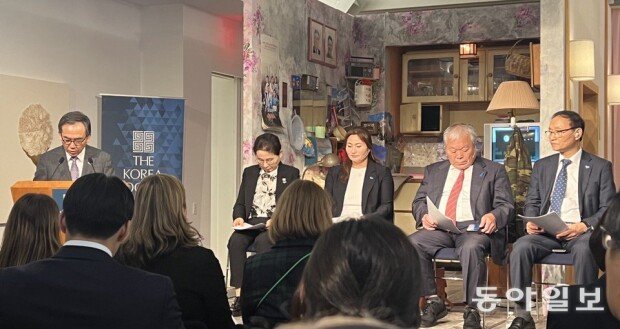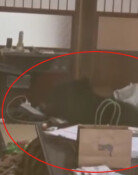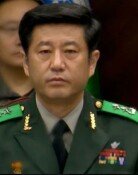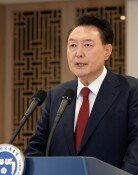Families of S. Korean and Japanese abductees in N. Korea ask for help
Families of S. Korean and Japanese abductees in N. Korea ask for help
Posted September. 27, 2024 07:58,
Updated September. 27, 2024 07:58

In Manhattan, New York, where the 79th session of the United Nations General Assembly is being held, two sets were set up in the shape of a family home in North and South Korea, respectively, on Wednesday (local time). On chairs placed in front of them, five people who have lost family members to North Korea told their stories over an hour in trembling voices. At the North Korean human rights roundtable, “Forget Me Not,” organized by the nonprofit Korea Society, family members of abductees and detainees from South Korea and Japan took the stage to speak out about North Korea’s human rights abuses.
North Korean defector Son Myong-hwa shared the story of her father, a prisoner of war who died after decades of forced labor in a North Korean coal mine. “I brought his remains to South Korea in 2013 in accordance with his will, but in return, my older brother, younger sister, and nephew were sent to political prison camps,” Son said, crying. “I defected from North Korea in 1998, but my younger sister was forcibly repatriated from China last year,” Kim Gyu-ri said in a shaky voice. ”I ask for help from the international community to find my sister.”
Teruaki Matsumoto, the younger brother of Rumiko Matsumoto, a Japanese woman abducted by North Korea from a beach in Japan in 1978, and Kim Jung-sam, the older brother of Missionary Kim Jung-wook, who was captured by North Korea in 2013 during his missionary work, also participated in the meeting and expressed their families’ desperate wait. Several overseas Koreans who attended the meeting also shared their stories, saying they also have family members in North Korea, and asked for the international community’s help.
The meeting was attended by Minister of Foreign Affairs Cho Tae-yul, special envoy on North Korean human rights issues in the U.S. Department of State Julie Turner, and U.S. Assistant Secretary of State for Democracy, Human Rights, and Labor Dafna Rand. “The phrase ‘Forget Me Not’ is a cry of desperation from victims of human rights abuses and a voiceless cry from the people of North Korea,” said Minister Cho. “We are grateful for the sacrifices and courage of those who continue to work in the shadows to share news about their loved ones detained in North Korea,” he said. “For more than 70 years, Korea has been divided in two, experiencing a brutal social experiment that has shown us what the absence or presence of free human rights and democracy can do to a human being,” he added. ”We will strongly express our concern about the human rights situation in North Korea, as well as the plight of unconverted long-term political prisoners, prisoners of war, and forcibly repatriated North Korean defectors, at the Universal Periodic Review in November.”
“The majority of the separated families are elderly, in their late 80s and 90s,” Assistant Secretary Rand said. ”We are committed to returning to the negotiating table with North Korea unconditionally, with a sense of urgency that time is running out.”
Woo-Sun Lim imsun@donga.com







